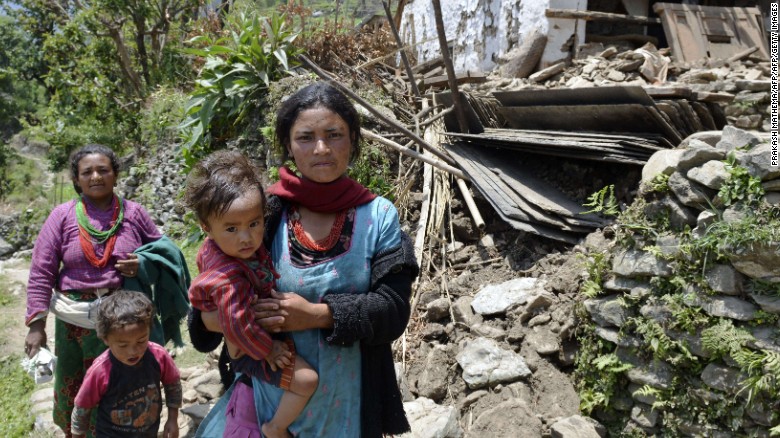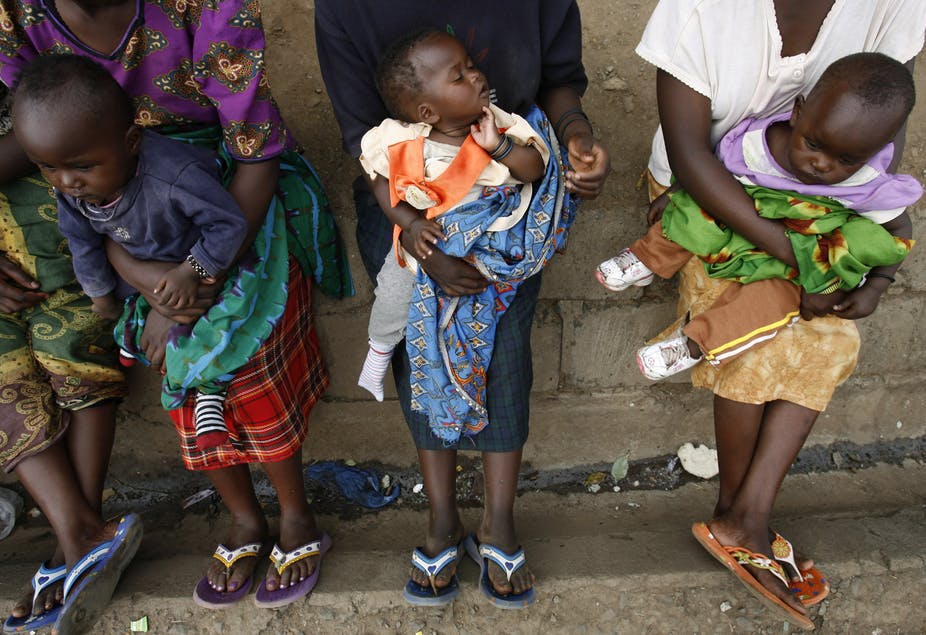Like many women, I am heartened by the Me Too movement and the spotlight it has put on sexual assault and harassment. It makes me want to fight harder to tell the stories of those whose voices are still going unheard ― especially those of women experiencing homelessness.
As a sociologist who studies food insecurity, I regularly meet with women who don’t have homes. Many times, what starts off as a conversation about food turns into a conversation about something else. They want to talk about how unsafe they feel in the world. They tell me they won’t go to certain food providers because they believe they’ll get harassed there ― or they already have been harassed there.
Harassment and abuse aren’t part of the public conversation surrounding food insecurity. They aren’t part of the conversation surrounding homelessness. Yet from what I’ve been hearing and witnessing ― and from what the research shows ― homeless women aren’t safe no matter where they go.
I once watched a man verbally attack a woman outside an emergency food provider’s doors, yelling at her until she cried. People tried to step in, but the man continued to scream about how the woman shouldn’t be allowed to go inside because she was “already so fat ― do you really need this food?” This happened eight months ago. The woman told me she hasn’t been back to that meal provider since.

I don’t have to return if I decide not to. But where can these women go?
I spoke with another young woman who told me she won’t go to certain soup kitchens because she knows the men there will hit on her from the moment she walks in the door until the moment she leaves. She was living in her car at the time and told me she sometimes would rather eat a bag of chips for dinner than go someplace to get a free meal and deal with men harassing her.
One young woman living in a shelter told me she never goes anywhere alone. Because men know she is homeless, they presume she’s also willing to trade sex for money ― and mistreat her as such.
I’ve experienced some of this harassment myself. One man followed me around every week I went to a particular food provider. He repeatedly hit on me despite my always saying no. Months later, another man tried to kiss my mouth, and when I told him I didn’t want to be touched, he replied, “You’re a woman ― you should like it.”
Just recently, a woman told me her friend was raped while waiting at the bus station at 8 p.m. on a weeknight. Both of them are currently without a home, and the man was described as someone who is constantly preying on such women. According to the person who spoke to me, he punched her friend in the face, forced her hands behind her back and dragged her to a nearby empty parking lot, where he raped her.
The woman relaying the story explained that the victim later approached a police officer about the assault. She said the officer told her friend that he couldn’t do anything for her and that she should call 911 instead. The woman teared up as she told me all of this. She believes she knows who the rapist is, and it scares her to think she might be next.
This woman told me she suspects the police officer brushed off her friend because he knew she was homeless, and I think that’s highly plausible. People experiencing homelessness might be the most stigmatized population of them all. And they tend to view the police more as a threat than a source of help, because officers are often tasked with “cleaning up the streets.”
I contacted the local police department in an attempt to validate that rape report and to tell them what I’ve been hearing from the community. I called an anonymous tip line that directed me to call 911. They told me a police officer would call me back, and in about 30 minutes, one did. He said there’s not much they can do without an official report by the victim.
I tried to explain that the women I talk to through my work are scared of the police. I told him that from what I’m hearing, this is a substantial problem for homeless women ― not a one-time event. The officer said he would keep an eye out, but there is not much he can do without the name of the victim, which I did not have permission to share. We ultimately didn’t really get anywhere.
But these stories are not exceptions. They are the rule for women experiencing homelessness.
The constant threat of sexual violenceand harassment against these women has been well-documented. In a 2005 survey of 737 such women by Florida researchers, 78 percent reported they’d been subjected to rape, physical assault and/or stalking in their lifetime. Those rates are disproportionately higher than the national average.
However, when I bring up these issues with friends or family or even fellow academics, they commonly reply, “I’ve never thought about that before.” The general public isn’t reading academic research about the homeless population, and the mainstream media isn’t covering it. If I had a penny for every time I’ve noticed someone avert their eyes when they see someone living outside, I could probably afford to build some affordable housing, which many U.S. cities desperately need.
The only difference between the homeless women and the women now coming forward and having their stories believed is that when homeless women speak, no one listens.
When my day’s work is done, after I’ve listened to these stories, I get in my car to drive home, and my heart feels like it might explode. I’m at these emergency food providers because I choose to be, not because I need to be. I don’t have to return if I decide not to. But where can these women go?
No group of women in the United States is free from the reality of living in a patriarchal society that devalues their existence. The only difference between the homeless women I regularly hear from and the women who are now coming forward and having their stories believed is that when homeless women speak, no one listens.
It is vitally important that police officers work on fostering better relationships with women experiencing homelessness. Assault and harassment claims must be taken seriously, regardless of whether the victim has a home address. Women who have been attacked might also find it less frightening to speak to a female officer. But only 12 percent of full-time police officers are female. And as a society, we must question laws that criminalize homelessness, because they erect a barrier of mistrust between the police and the homeless community.
Women experiencing homelessness already live in the margins of society, in the margins of the Me Too movement and in the margins of our minds. At the very least, we must see and acknowledge their reality.
Mari Kate Mycek is a doctoral candidate in the sociology department at North Carolina State University. Her research focuses on the intersections of food, inequality and community development.

